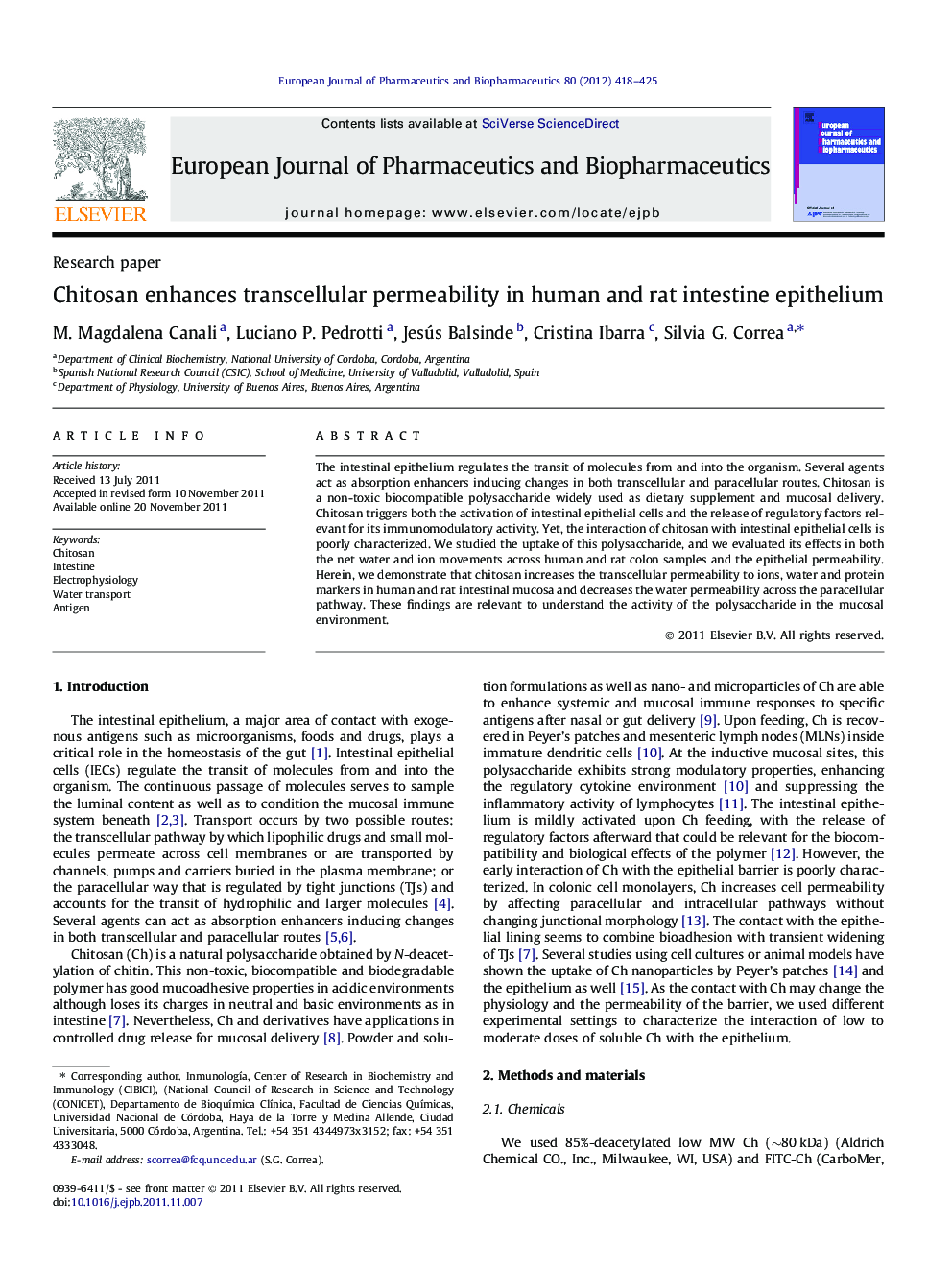| Article ID | Journal | Published Year | Pages | File Type |
|---|---|---|---|---|
| 2084022 | European Journal of Pharmaceutics and Biopharmaceutics | 2012 | 8 Pages |
The intestinal epithelium regulates the transit of molecules from and into the organism. Several agents act as absorption enhancers inducing changes in both transcellular and paracellular routes. Chitosan is a non-toxic biocompatible polysaccharide widely used as dietary supplement and mucosal delivery. Chitosan triggers both the activation of intestinal epithelial cells and the release of regulatory factors relevant for its immunomodulatory activity. Yet, the interaction of chitosan with intestinal epithelial cells is poorly characterized. We studied the uptake of this polysaccharide, and we evaluated its effects in both the net water and ion movements across human and rat colon samples and the epithelial permeability. Herein, we demonstrate that chitosan increases the transcellular permeability to ions, water and protein markers in human and rat intestinal mucosa and decreases the water permeability across the paracellular pathway. These findings are relevant to understand the activity of the polysaccharide in the mucosal environment.
Graphical abstractThe effective uptake of Chitosan by intestinal epithelial cells (IECs) is associated to the transcellular internalization of proteins such as horseradish peroxidase (HRP).Figure optionsDownload full-size imageDownload as PowerPoint slide
